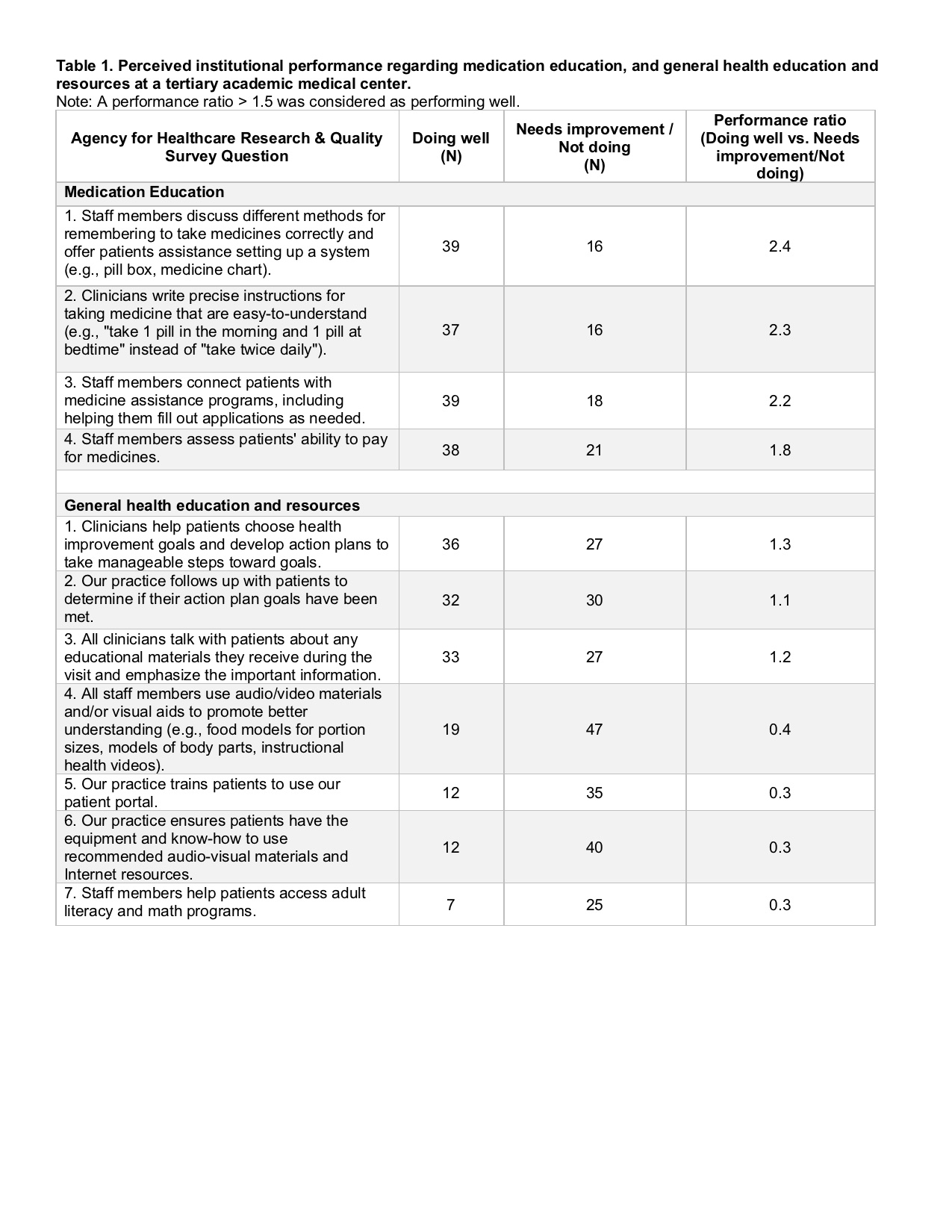Beyond Medication Education: Opportunities for Improvement in Health Education of Solid Organ Transplant Recipients
Y. J. Bababekov, Y. Hsu, C. G. Rickert, Y. Hung, J. A. Fishman, J. F. Markmann, L. Dageforde, D. C. Chang, H. Yeh
Department of Surgery, Massachusetts General Hospital, Boston, MA
Meeting: 2019 American Transplant Congress
Abstract number: D24
Keywords: Patient education, Psychosocial, Public policy, Quality of life
Session Information
Session Name: Poster Session D: Quality Assurance Process Improvement & Regulatory Issues
Session Type: Poster Session
Date: Tuesday, June 4, 2019
Session Time: 6:00pm-7:00pm
 Presentation Time: 6:00pm-7:00pm
Presentation Time: 6:00pm-7:00pm
Location: Hall C & D
*Purpose: As immunosuppressive medications are crucial to graft and patient survival, transplant centers dedicate significant resources to medication education. However, patient outcomes also depend on general health education. We assessed organizational engagement in these topics at a tertiary academic institution.
*Methods: A 51-question survey from the Agency for Healthcare Research & Quality was administered to staff at a multi-visceral Transplant Center from 2/28/2018 to 4/6/2018. Respondents selected “Doing well”, “Needs improvement”, “Not doing”, and “Not sure/NA” to a wide range of questions. 11 questions on medication education, and general health education and resources were included for analysis. A performance ratio was calculated by dividing the number of “Doing well” responses by the sum of “Needs improvement” and “Not doing” responses. “Not sure” responses represented no opinion on institutional performance and were excluded. A ratio greater than 1.5 was considered as performing well, as an indication that 50% more staff responded “Doing well” compared to “Needs improvement” and “Not doing”.
*Results: 68 staff (20% response rate), including nurses (28.3% of total respondents), physicians (20.0%), and coordinators (12.8%), completed the survey. Respondents rated the institution as performing well in the realm of medication education and access (performance ratios 1.8-2.4), but less well regarding general health education and accessing non-medication related resources (performance ratios 0.3-1.3) (Table 1).
*Conclusions: The transplant community in this center is invested in and perceives it is performing well at providing patients medication education and access. There is less confidence in institutional engagement in providing patients with general health education and resources. Staff perceptions will be validated by assessment of patient perceptions, satisfaction, and needs. Together this information may indicate additional opportunities to improve transplant patient outcomes.
To cite this abstract in AMA style:
Bababekov YJ, Hsu Y, Rickert CG, Hung Y, Fishman JA, Markmann JF, Dageforde L, Chang DC, Yeh H. Beyond Medication Education: Opportunities for Improvement in Health Education of Solid Organ Transplant Recipients [abstract]. Am J Transplant. 2019; 19 (suppl 3). https://atcmeetingabstracts.com/abstract/beyond-medication-education-opportunities-for-improvement-in-health-education-of-solid-organ-transplant-recipients/. Accessed February 22, 2026.« Back to 2019 American Transplant Congress

